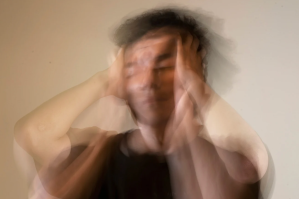We all know that moment when the alarm goes off in the morning and you start thinking about who you wouldn’t murder for another five minutes, (another 10 minutes?!) of sleep. You hit the snooze button, and your eyes drift closed again, only to be thrown open as the alarm sounds one more time. While those extra few moments of sleep might feel wonderful at the time, they’re never as good as simply waking up and staying up and can even cause more harm than good.
“The name for the uncomfortable feeling on awakening is ‘sleep inertia,’” writes Dr. Keith Roach in The Detroit News. Sleep inertia is that feeling of zombie-like grogginess you get when you wake up again shortly after being up once before, like when you hit the snooze button or take a nap. As the Sleep Foundation writes on their site, it can also include “disorientation, drowsiness, and cognitive impairment that immediately follows waking.” Though going back to sleep might feel nice for a short time, you’d actually be better off for the rest of the day by just getting out of bed, especially if you wake up naturally feeling well-rested, Roach continues.
While there’s not an explicit understanding of why sleep inertia happens, according to the Sleep Foundation, it could be related to a disturbance of NREM sleep, non-rapid eye movement sleep, which is “an essential part of the sleep cycle,” that’s important because it’s when the body takes time to repair itself. When you disrupt NREM sleep, then, you disrupt the body’s replenishing capabilities. This brings on that groggy feeling, because 10 minutes isn’t just 10 minutes–your body’s actually resetting itself for anywhere from 30 minutes to some four hours. What you end up doing, according to Dr. Sam Wagg of Fix Medical Group in San Diego, is trading 10 minutes for an even longer period of time to recover, and it just isn’t worth it. “Pressing snooze can make sleep inertia worse because of the repeated forced awakenings,” says psychiatrist Dr. Tracey Marks. “Our brains don’t like waking up and going back to sleep and waking up again in a short time period.”

Luckily, with modern advents, you don’t have to do this on your own. As Dr. Marks shares, there are several ways to make waking up easier. One of them is by choosing relaxing sounds to wake up to, and allowing them to slowly increase volume while the alarm goes off. Another is choosing a regular time to rise, weekends included. “This keeps your body clock in sync,” she says. You can also choose to wake up to natural light or invest in a sunrise alarm clock. Last but not least, Dr. Marks says, you actually have to get up and “move around so that your body can know it’s time to start the day.”
According to the Sleep Foundation, you can also limit caffeine, make sure the room is cool, and reduce the use of substances like cigarettes and alcohol. Another useful warrior against sleep inertia is bedding that enhances your sleeping experience. This can include “natural, breathable fibers like wool, down, cotton, linen and silk…[that] feel soft and comfortable for your body,” Apartment Therapy shares.
And while a cool, cozy bed nestled in soft light and music sounds like something you may never want to leave, it will actually help you get out of bed feeling that much more rested and ready to take on the day, leaving sleep inertia in the dust.














